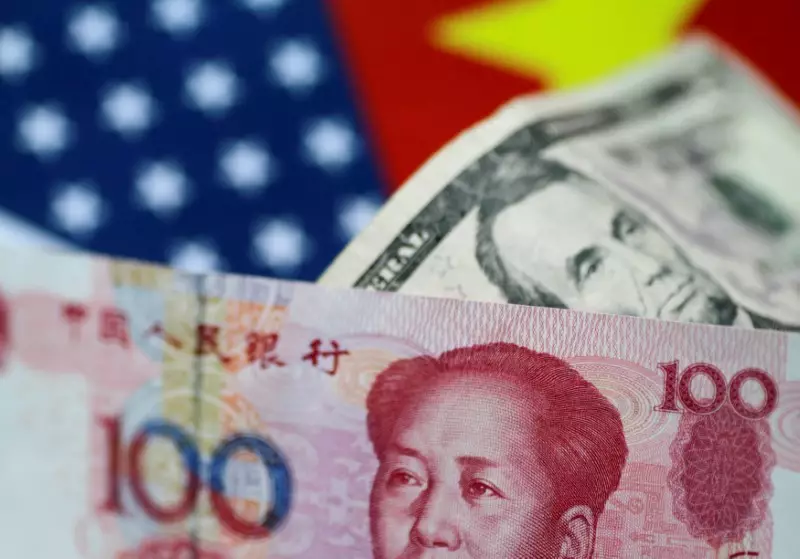As the global economic landscape braces for the inauguration of Donald Trump, financial institutions are advising clients to prepare for potential shifts in currency valuations, particularly regarding the USD/CNY exchange rate. Trump’s policies promise to revolutionize international trade dynamics, and UBS has recently indicated that investing in the USD/CNY pair could be prudent, considering the uncertainties that looms with his leadership.
With the inauguration event nearing, analysts at UBS emphasize that the markets are currently not adjusting for the considerable implications of Trump’s trade policies. Despite speculation surrounding immediate tariff implementations, UBS suggests that significant moves are not anticipated on day one. However, the focus on tariffs will likely remain a salient concern for traders as they navigate through this light reporting period. The subdued data from other economic sectors during this time further magnifies the importance of political developments on the global market.
It is crucial to understand that the currency markets are underpinned by a complex interplay of factors, including divergent economic growth expectations globally. UBS notes that the recent uptick in option volatility is attributable not only to the impending inauguration but also to specific challenges faced by economies like those in Canada and the UK. A volatility spike can often mirror market anxiety, indicating traders’ readiness to respond to unforeseen economic shifts. Therefore, as the Trump administration begins to lay out its economic strategies, the FX markets are likely to experience heightened volatility, particularly for the CNY.
UBS puts forth a projection that the Chinese yuan (CNY) may press against depreciation pressures as Trump’s tariffs, particularly targeting China, start to materialize. Should these policies be enacted, the People’s Bank of China (PBoC) may allow the CNY to further weaken, aiming to stabilize its export-driven economy against the headwinds of foreign tariffs. In essence, a weaker yuan could create a buffer for China, offsetting adverse effects caused by trade restrictions.
Given these evolving scenarios, UBS advocates a long position on USD/CNY, hypothesizing that it could shift towards a target of 7.50. This strategy is not without caution, as vulnerabilities within China’s economic framework can lead to increased demand for foreign currencies and accelerated investment outflows. Thus, UBS advises implementing a stop-loss position at 7.20 to mitigate potential risks effectively. Investors must remain agile, as minor fluctuations can result in significant financial repercussions amidst an uncertain political climate.
As stakeholders prepare for one of the most consequential periods in modern economic history, the potential consequences of Trump’s presidency on the USD/CNY exchange rate exemplify a pivotal moment for forex traders. The uncertainty surrounding trade policies could unleash volatility that forces investors to reassess their strategies continuously. The interplay between U.S. and Chinese economic policies will mandate close attention and a forward-thinking approach, as the markets evolve in tandem with the new administration’s actions.

